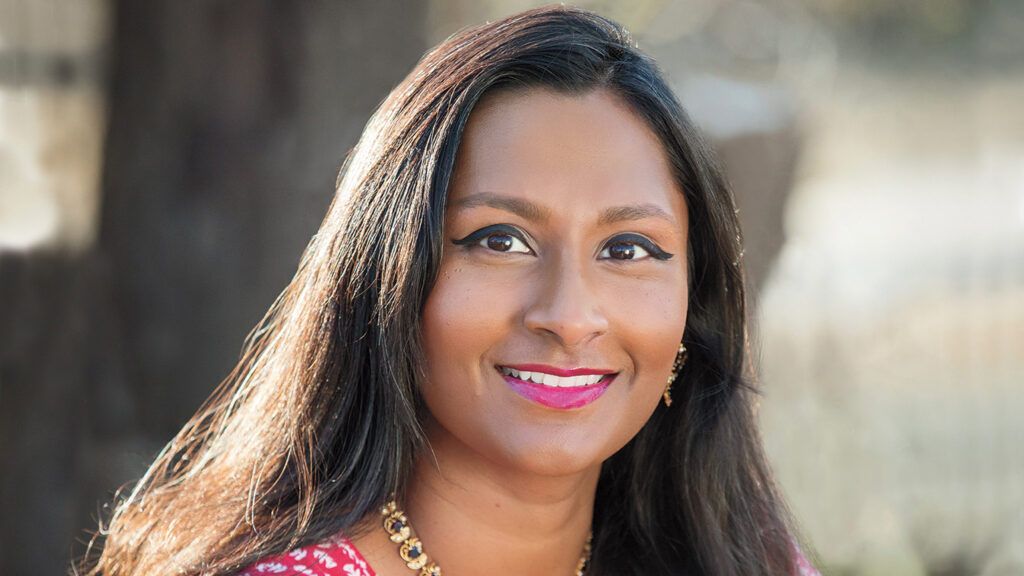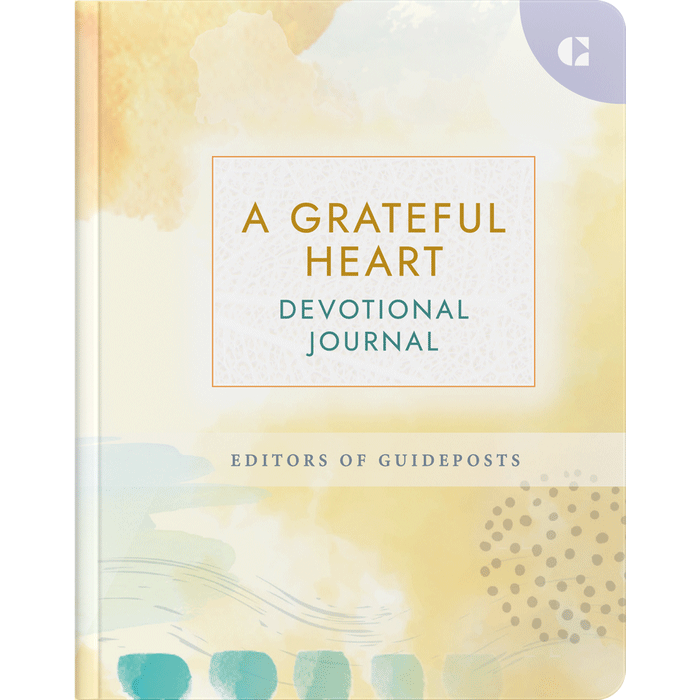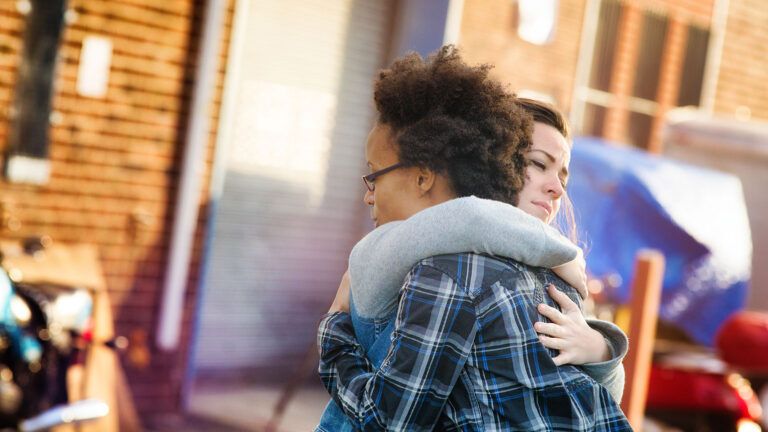I stood in my bedroom closet, searching for the perfect outfit. The big day was coming, and I wanted to look my best. Did I own anything red, white and blue? All of my most colorful outfits were Indian. I didn’t want to look too Indian. Then again, I didn’t want to turn my back on my heritage either.
I was born and raised in Tamil Nadu, India. In 2002, when I was 18, my father, a diplomat, was assigned to the United Nations in New York City. I moved to New York, married an American and settled in Oklahoma, where my husband, Destry, had been raised.
After 16 years in America, I was about to make my relationship with my adopted home official. In just 48 hours I would become an American citizen.
I’d been preparing for this moment for a long time. I applied for my green card soon after marrying Destry. More than a year ago, I began the naturalization process, sitting through interviews with immigration officials, undergoing background checks and filling out forms. I felt certain this was what I wanted to do.
So now that the ceremony was just two days away, why was I so nervous? Why couldn’t I even decide what to wear?
In many ways, I was already American. As co-leader with Destry of an on-campus ministry at Oklahoma State University, I was learning the American culture of college students. Destry and I lived in a two-story house on one and three-quarter acres, surrounded by pecan trees and a cotton field. Our son, Obadiah, almost a teenager, rode an ATV for fun. Among his favorite foods were hamburgers and macaroni and cheese.
Destry and I had made a good life here. And yet, as I tried to pick out an outfit for the citizenship ceremony, my eyes kept lingering on my Indian, not American, clothes. I held up a red and white churidar flecked with blue, a traditional outfit combining a knee-length dress with tapered leggings.
The colors were American. But I cherished this churidar because it reminded me of India. It was a Christmas gift from my father. The fabric was embedded with tiny flashing mirrors that reflected my skin, which was dark even by Indian standards. Staring at the churidar, at my skin, I realized that, no matter how American my life was now, in many ways I would always be Indian.
Was I ready to give that up? Was I really an American? When I took that oath in two days, would I be abandoning my Indian family and culture?
Suddenly I had no answer to the most basic question: Where is home?
This shouldn’t be so hard, I told myself. Compared to friends who’d become American citizens, I’d had it easy. I’d never had to endure financial struggle, job discrimination or separation from a spouse. I’d always felt welcome.
I thought back to my first visit to an American grocery store, near the diplomatic residence in Manhattan where I lived with my father, sister and stepmother. I’d been mesmerized by the store’s giant cheese section. I couldn’t believe the options!
Growing up in India, I had been raised not just by my parents but by members of my large extended family. My paternal grandmother, who lived with us after we moved to New Delhi, often took me with her in the morning to buy produce from the vegetable seller’s rickety four-wheeled cart. At most the cart held 10 kinds of vegetables.
Granny taught me how to check the firmness of an eggplant, the ripeness of a tomato, the freshness of coriander. The choices were few, but the smells and textures were rich. My favorite was the mangoes. So juicy, bursting with flavor.
I had no idea how to approach the grocery store’s wall of shrink-wrapped cheese. I clutched the shopping list my stepmother had given me. Bewildering!
“Can I help you?” a store employee asked. She patiently explained the different cheeses and guided me through the market. She seemed just as curious about me as I was about her store.
That set the tone for my life in the United States. Mostly I have found Americans to be friendly and inquisitive. Spontaneous conversations about my clothes, my accent or my food have led to lifelong friendships. I’ve met people from all over the world and enjoyed my first tastes of Mexican, Thai, Peruvian and Italian food.
I’m not naive. I know many immigrants to America face hardship, even hostility. I can only thank God my own path has been so smooth.
Indeed, in many ways, America has offered me more—not less—freedom and cultural opportunity. In India, my dark skin was discussed frankly as a barrier to a good marriage. My status as a woman also presented challenges.
India is the world’s largest democracy, and a woman became its prime minister in 1966. My mother was highly educated and worked as a magistrate until she died when I was 12. I was encouraged to pursue high academic goals. But I also understood that it would be awkward culturally for my future husband if I had more education than he did. So a graduate degree would limit my choice of partners. Though I have always yearned to serve God in everything I do, there were few leadership opportunities for women at the churches I attended growing up.
I met Destry at the on-campus ministry he was starting at my Manhattan community college. I volunteered to help with the ministry, and I was stunned when, at the second meeting of our Bible study, Destry asked me what I planned to teach.
“Me?” I asked.
“Sure,” Destry replied. “We’re co-leading this thing. I figured we’d trade off teaching sessions.”
Destry and I married in 2005. Our first and only child, Obadiah, was born three months premature. By that point, my father had been called back to India. Destry and I needed lots of support from extended family as we cared for a premature infant. We moved to Destry’s hometown in Oklahoma.
I grieved over the distance from my Indian relatives. But Destry’s family welcomed me warmly. Every Sunday after church, we went to Destry’s grandmother’s house for lunch. She fed us a home-cooked American meal and told me stories about growing up in Oklahoma. Her tales of eating wild blackberries reminded me of plucking mangoes straight from the tree.
Obadiah’s premature birth forced me to abandon my college education a few months shy of my bachelor’s degree. The Christmas after Destry and I arrived in Oklahoma, his aunt Tanya took me aside and said she felt as if God had told her to help me finish school.
For almost a year, she drove me an hour each way to the nearest public university. Aunt Tanya looked after Obadiah while I was in class. In 2009, I graduated with a degree in molecular and cell biology and went on to earn a master’s degree.
So many wonderful American memories! Those experiences had fortified my desire to become a citizen. Were they enough to compensate for everything I was leaving behind? I walked out of the closet, unable to settle on an outfit.
Over the next two days, my sense of loss only increased. Who would teach Obadiah to pick fresh vegetables from the vegetable cart? He still didn’t know what a real mango tasted like. No offense, but American mangoes just don’t compare.
Destry and I couldn’t manage regular trips to India. We saw my dad whenever work brought him to the U.S. But it wasn’t the same as being surrounded by relatives at Granny’s house. When Destry, Obadiah and I finally did make the journey to India, I would have to go through customs as a foreign citizen.
The day of the ceremony, Destry, Obadiah and I woke early for the 65-mile drive to the U.S. immigration office in Oklahoma City. At last, I settled on a compromise outfit: a pink dress neither too Indian nor too American. Exactly how I felt!
I lined up with the other prospective citizens. Hearing my name shouted, I looked over to a large group standing in the visitors’ line. Aunt Tanya was there. Destry’s mom and her best friend. Leaders at the campus ministry. Some people had driven three hours to get there.
I was ushered into a room with 47 other immigrants, and an official explained the oath-taking procedure. Then we filed into another room where the ceremony would take place.
It was a plain room with an American flag and a replica of the Statue of Liberty. Our friends and family were seated in back. Immigrants stood at the front and recited the oath of citizenship in unison. Then everyone recited the Pledge of Allegiance.
An official called each of us forward by name to collect our naturalization certificates.
“Cynthia Dobbs,” he said. The room erupted with cheers. I stepped forward, received my certificate and before I knew it I was back in my seat. As an American!
I was still sorting through my feelings when I suddenly remembered four words from the pledge. I had recited them countless times at school events, rodeos and Fourth of July celebrations but had never noticed how remarkable they are: One nation, under God.
I was now a citizen of a country that envisioned itself under God’s protection.
Maybe the distance I was traveling wasn’t so great after all. I had been living under God’s protection all my life. That was as true here in America as it was in India. As long as I remembered that, I would always be at home, no matter where I lived.
I glanced down at my dress, laughing at myself for all the agonizing I’d done. I let myself relax and joined my family smiling and clapping.
I was Cynthia Gandhi, born in Tamil Nadu, India. And I was Cynthia Dobbs, an American citizen. I was home!
For more inspiring stories, subscribe to Guideposts magazine.






